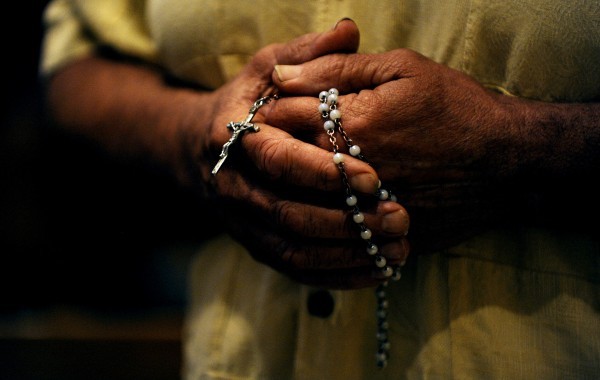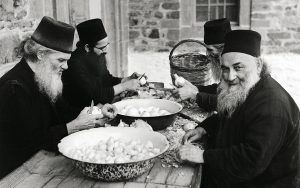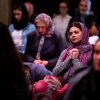By the time this column is read, Great Lent will likely be completed for another year: fasting will be finished, Presanctified Liturgies will be completed, and Saturday liturgies to pray for the souls of those we love will be over.
The fullness of the joy of Christ’s Resurrection is shared by us in proportion to our struggle during Great Lent. For many, Lent is a spiritual hurdle, a training ground for spiritual maturity. Unfortunately, for too many Orthodox Christians, Lent simply means several weeks without eating meat: no intensified prayers, no attending the common services of the Church, no prayers for the dead. By this standard, it is difficult to tell many Orthodox Christians from Protestants, Roman Catholics, or in some cases, from secular vegetarians.
If our spiritual progress can be measured by what we put into our life with Christ, most of us will find that most of the time, we fall short of our hopes. Great Lent is no exception. Yet if we let our failures become our habit, our life takes on a new design – and it isn’t a Christian image.
Christ’s Cross is the image for our lives as Orthodox Christians throughout the year. If our attention to the Great Fast was limites or nonexistant, there is no time like the present to begin to keep fasting days, to pray at the appointed times, and to shape our life around our faith – rather than treating Christ and His Church as a hobby to fit in when we have time.
And if Great Lent was anything but great for us in our own lives, take heart: God’s mercy is abundant, and He wants each of us to come to Him for refreshment, strengthening, and the transfiguring of our lives. This is a process that must go on throughout the year. God helps us with it, if we will have Him.
Spiritually speaking, we fall all the time. What we must never fail to do, however, is to fail to get up, to take up the struggle anew, and to begin to live again the Christian life.
Anything else makes our failures lasting ones, and loses the great gift Christ continues to offer us.




















